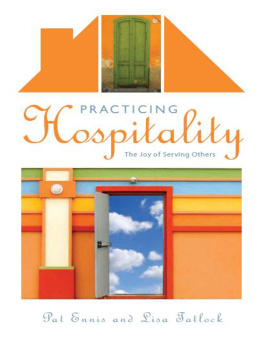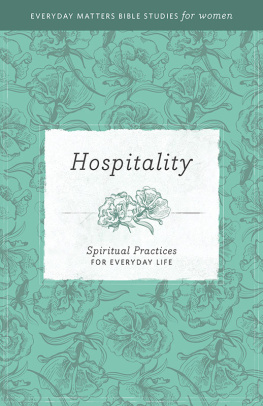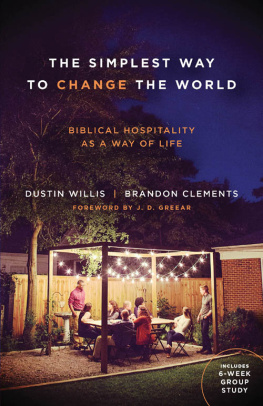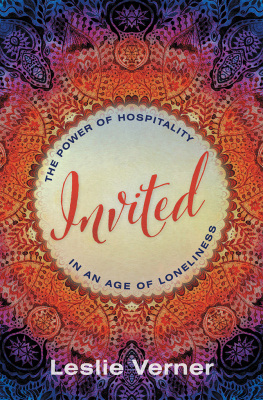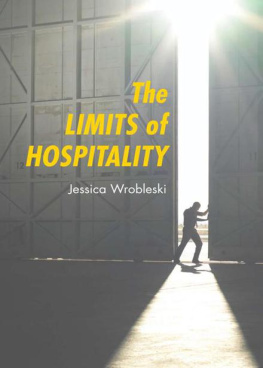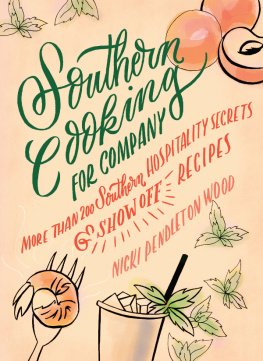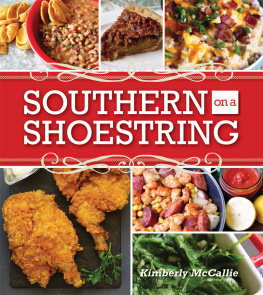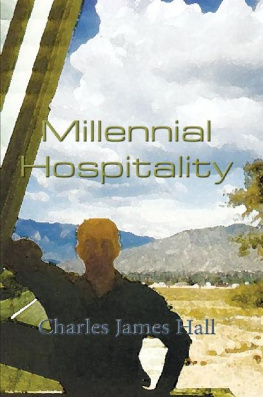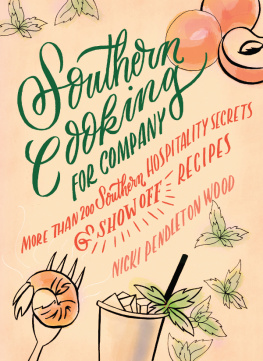Szczesiul - The Southern Hospitality Myth
Here you can read online Szczesiul - The Southern Hospitality Myth full text of the book (entire story) in english for free. Download pdf and epub, get meaning, cover and reviews about this ebook. year: 2017, publisher: University of Georgia Press, genre: Romance novel. Description of the work, (preface) as well as reviews are available. Best literature library LitArk.com created for fans of good reading and offers a wide selection of genres:
Romance novel
Science fiction
Adventure
Detective
Science
History
Home and family
Prose
Art
Politics
Computer
Non-fiction
Religion
Business
Children
Humor
Choose a favorite category and find really read worthwhile books. Enjoy immersion in the world of imagination, feel the emotions of the characters or learn something new for yourself, make an fascinating discovery.

- Book:The Southern Hospitality Myth
- Author:
- Publisher:University of Georgia Press
- Genre:
- Year:2017
- Rating:4 / 5
- Favourites:Add to favourites
- Your mark:
- 80
- 1
- 2
- 3
- 4
- 5
The Southern Hospitality Myth: summary, description and annotation
We offer to read an annotation, description, summary or preface (depends on what the author of the book "The Southern Hospitality Myth" wrote himself). If you haven't found the necessary information about the book — write in the comments, we will try to find it.
The Southern Hospitality Myth — read online for free the complete book (whole text) full work
Below is the text of the book, divided by pages. System saving the place of the last page read, allows you to conveniently read the book "The Southern Hospitality Myth" online for free, without having to search again every time where you left off. Put a bookmark, and you can go to the page where you finished reading at any time.
Font size:
Interval:
Bookmark:
The Southern
Hospitality Myth

SERIES EDITORS
Jon Smith, Simon Fraser University
Rich Richardson, Cornell University
ADVISORY BOARD
Houston A. Baker Jr., Vanderbilt University
Leigh Anne Duck, The University of Mississippi
Jennifer Greeson, The University of Virginia
Trudier Harris, The University of Alabama
John T. Matthews, Boston University
Tara McPherson, The University of Southern California
Claudia Milian, Duke University
Hospitality Myth
ETHICS, POLITICS,
RACE, AND AMERICAN MEMORY
Anthony Szczesiul

This publication is made possible in part through a grant from the Bradley Hale Fund for Southern Studies.
2017 by the University of Georgia Press
Athens, Georgia 30602
www.ugapress.org
All rights reserved
Set in 10/13 Kepler by Graphic Composition, Inc.
Printed digitally
Most University of Georgia Press titles are available from popular e-book vendors.
Library of Congress Cataloging-in-Publication Data
Names: Szczesiul, Anthony, author.
Title: The Southern hospitality myth : ethics, politics, race, and American memory / Anthony Szczesiul.
Description: Athens : The University of Georgia Press, 2017. | Series: The new Southern studies series | Includes bibliographical references and index.
Identifiers: LCCN 2016049005| ISBN 9780820332765 (hard bound : alkaline paper) | ISBN 9780820350738 (e-book)
Subjects: LCSH: Southern StatesSocial life and customs17751865. | HospitalitySouthern StatesHistory. | HospitalityMoral and ethical aspectsSouthern StatesHistory. | Southern StatesMoral conditions. | RacismSouthern StatesHistory. | Southern StatesPublic opinionHistory. | RegionalismUnited StatesHistory. | MemoryPolitical aspectsUnited StatesHistory. | MemoryMoral and ethical aspectsUnited StatesHistory. | Public opinionUnited StatesHistory.
Classification: LCC F213 .S96 2017 | DDC 305.800975DC23
LC record available at https://lccn.loc.gov/2016049005
For Stacy
This book has taken far too long to complete, and given the length of time devoted to the research and writing process (well over a decade), I have incurred a very long list of debts. The origins of this project lie in some lively class discussions that took place in one of my southern literature courses over a decade ago, so my first debt of gratitude goes to my past and present students at the University of Massachusetts Lowell, who not only inspired this project, but who also inspire me every day with their earnest curiosity and general goodwill. I feel lucky to go to my job every day. As I initially explored this subject before the archival research began, Michael Pierson of the UMass Lowell History Department was an important resource of information. At this early stage, I also benefitted from several long, meandering conversations about the project with my colleagues Julie Nash and Todd Avery and my good friends Gavin Sturges and Jake Bridge. Their thoughtful and generous interactions gave me the confidence to move forward and proved invaluable over the years of my research and writing. Early research was conducted at the South Caroliniana Library at the University of South Carolina, and my friends Keen and Nancy Butterworth put me up for a good part of a summer in their home in Columbia.
This project simply would not have been possible had I not lived in close proximity to one of Americas great archives: the American Antiquarian Society in Worcester, Massachusetts. What originally began as a more traditional literary studies project evolved into this current form largely through my time spent at the AAS, and through the many forms of collegial assistance I received there. In addition to many (generally happy) days spent in the reading room at AAS, I took advantage of two of their Summer Seminars in the History of the Book (first with Phil Gura and later with Lloyd Pratt and Jeannine DeLombard), and I also received a Kate B. and Hall J. Peterson Fellowship in the summer of 2005. Each of these experiences provided amazing opportunities for collegial interaction with fellows, seminar participants, and the incredible librarians and support staff at AAS. I would list every seminar participant and fellow and librarian if I could, but the list would be too long, and I would surely miss somebody. Special mention does go, however, to Camille Dungy and Kathryn Koo, both of whom were on concurrent fellowships with me in the summer of 2005. Our daily conversations over lunch certainly influenced the direction this project took in the years that followed.
The Society for the Study of Southern Literature has provided one of the were first published in an earlier form in a special issue of the European Journal of American Culture in 2007. Thanks to the press and to the journal for permission to reprint this earlier work. Sincere thanks also go to the many artists who provided permission to include their works in my study: Pierre Bellocq, Fran DiGiacomo, Karen Dupre, Larry Dyke, Britt Ehringer, Kevin Liang, and Frank Tarpley.
The University of Georgia Press has been both encouraging and patient in its support of this project. Thanks to Nancy Grayson for expressing an early interest in my work and to Walter Biggins for seeing the manuscript across the finish line. Thanks also to the series editors, Jon Smith and Rich Richardson, for having the faith that this would be a worthwhile addition to the series, and to Jon and Scott Romine, who served as the (formerly) anonymous reviewers of the manuscript. Their meticulous and thoughtful feedback truly helped me to find my way when I was still quite lost. Thanks also to John Joerschke and Thomas Roche of the press, who served as project editors, and to Barbara Wojhoski, who copyedited the manuscript.
I have received many forms of support at the University of Massachusetts Lowell, including a semester sabbatical and research and travel funding to support my work. Deborah Friedman and Rose Paton of University Libraries have always been especially helpful to me during this long process. As a faculty member and department chair, I have been fortunate to work under two outstanding deans: the late Nina Coppens and Luis Falcn. Luis has been especially supportive and encouraging as I have neared the completion of this project. This book was especially difficult to complete while I have been serving as the English department chair, and I am forever thankful to my colleague and friend Bridget Marshall, who, with the support of Luis, agreed to step in as interim chair for a semester so that I could complete the manuscript (what Bridget got out of this in exchange was the prescient knowledge that she will never again agree to be chair). Many thanks also to Jacky Ledoux, whose remarkable efficiency and contagious laugh make my work as chair more manageable. I am very lucky to work in a vibrant and collegial department, and I appreciate the way that so many of my colleagues have provided encouragement as I have worked to complete this book. Special thanks go to Mike Millner, who generously read and discussed draft chapters with me and who always had an uncanny knack for asking just the right question to keep me moving forward, and to Sue Kim, who carefully read the manuscript prior to my initial submission to the press. Many thanks also to my dear friends and colleagues Julie Nash and Paula Haines, who have always been invaluable sources of emotional support along the way.
Next pageFont size:
Interval:
Bookmark:
Similar books «The Southern Hospitality Myth»
Look at similar books to The Southern Hospitality Myth. We have selected literature similar in name and meaning in the hope of providing readers with more options to find new, interesting, not yet read works.
Discussion, reviews of the book The Southern Hospitality Myth and just readers' own opinions. Leave your comments, write what you think about the work, its meaning or the main characters. Specify what exactly you liked and what you didn't like, and why you think so.

